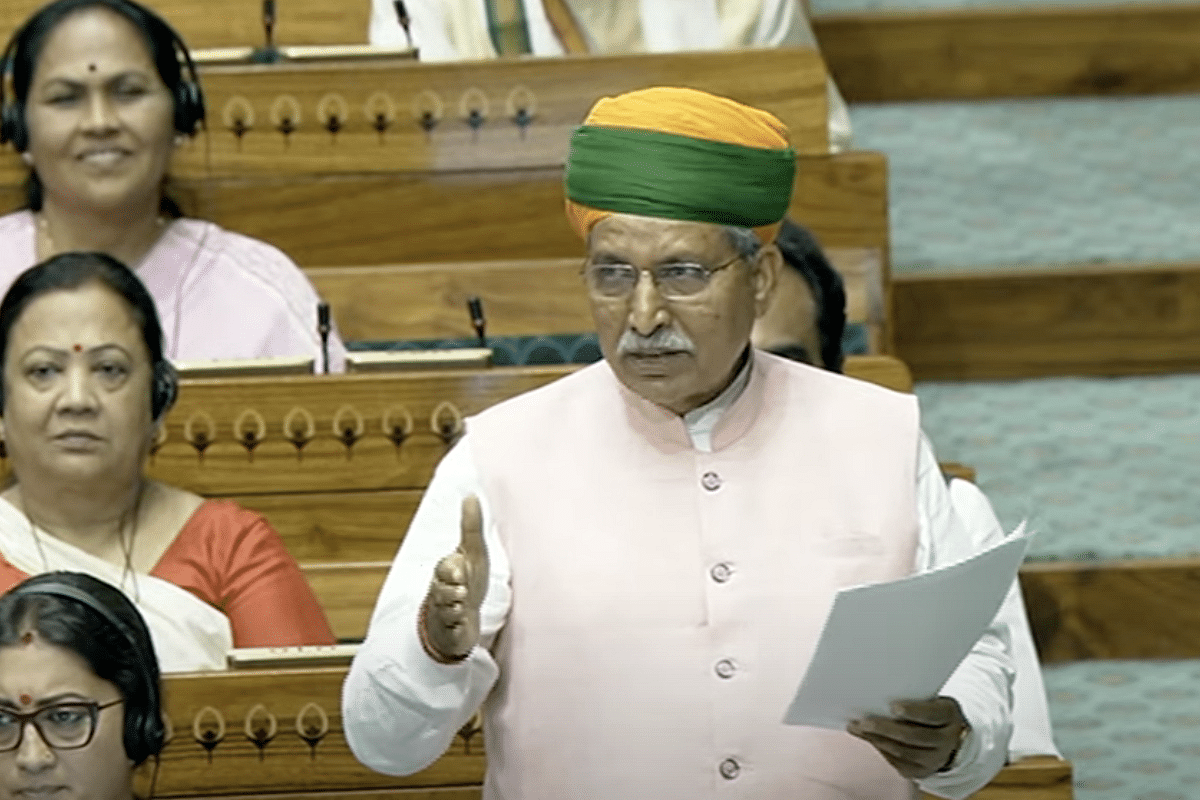News Brief
Women's Reservation Bill 2023 Explained; What's Different From 2008 Bill Passed By Rajya Sabha
- The Bill seeks to reserve one-third of the total number of seats in Lok Sabha and state legislative assemblies for women.
- Such bills were introduced earlier in 1996, 1998, 1999, and 2008.

Union Law Minister Arjun Ram Meghwal
Union Law Minister Arjun Ram Meghwal tabled the Women's Reservation Bill 2023 [The Constitution (128th Amendment) Bill] on Tuesday (19 September). The bill is being discussed today in Lok Sabha at the new parliament building.
Key features of the Bill
The Bill reserves, as nearly as may be, one-third of all seats for women in Lok Sabha, state legislative assemblies, and the Legislative Assembly of the National Capital Territory of Delhi. This will also apply to the seats reserved for SCs and STs in Lok Sabha and states legislatures.
The reservation will be effective after the census conducted after the commencement of this Bill has been published. Based on the census, delimitation will be undertaken to reserve seats for women. The reservation will be provided for a period of 15 years. However, it shall continue till such date as determined by a law made by Parliament.
Seats reserved for women will be rotated after each delimitation, as determined by a law made by Parliament. This implies rotation approximately every 10 years as after 2026 delimitation is mandated to take place after every census.
Background
Bills amending the Constitution to reserve seats for women in Parliament and state legislative assemblies have been introduced in 1996, 1998, 1999, and 2008. The first three Bills lapsed with the dissolution of their respective Lok Sabhas. The 2008 Bill was introduced in and passed by Rajya Sabha but it also lapsed with the dissolution of the 15th Lok Sabha.
In 2015, the Report on the Status of Women in India noted that the representation of women in state assemblies and Parliament continues to be dismal. It noted that decision-making positions in political parties have negligible presence of women.
While the number of women MPs has increased from 5 per cent in the first Lok Sabha to 15 per cent in the 17th Lok Sabha; the number continues to be quite low. Hence, the need for a legislature was felt.
What's different from the 2008 Bill
While the 2008 Bill proposed reserving one-third of Lok Sabha seats in each state/UT for women, the 2023 Bill aims to provide one-third of reservation on overall seats in Lok Sabha.
Another difference is that the 2008 Bill proposed rotating reserved seats after every general election to the Parliament/legislative assembly, the 2023 Bill suggests that the rotation exercise will be conducted only after every delimitation exercise.
This has been suggested because the rotation of reserved seats after every election may reduce the incentive for MPs to work for their constituencies as they could be ineligible to seek re-election from that constituency.
Support Swarajya's 50 Ground Reports Project & Sponsor A Story
Every general election Swarajya does a 50 ground reports project.
Aimed only at serious readers and those who appreciate the nuances of political undercurrents, the project provides a sense of India's electoral landscape. As you know, these reports are produced after considerable investment of travel, time and effort on the ground.
This time too we've kicked off the project in style and have covered over 30 constituencies already. If you're someone who appreciates such work and have enjoyed our coverage please consider sponsoring a ground report for just Rs 2999 to Rs 19,999 - it goes a long way in helping us produce more quality reportage.
You can also back this project by becoming a subscriber for as little as Rs 999 - so do click on this links and choose a plan that suits you and back us.
Click below to contribute.
Latest